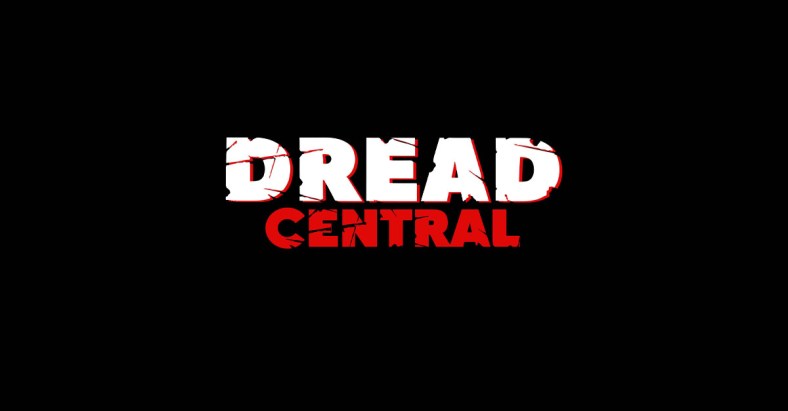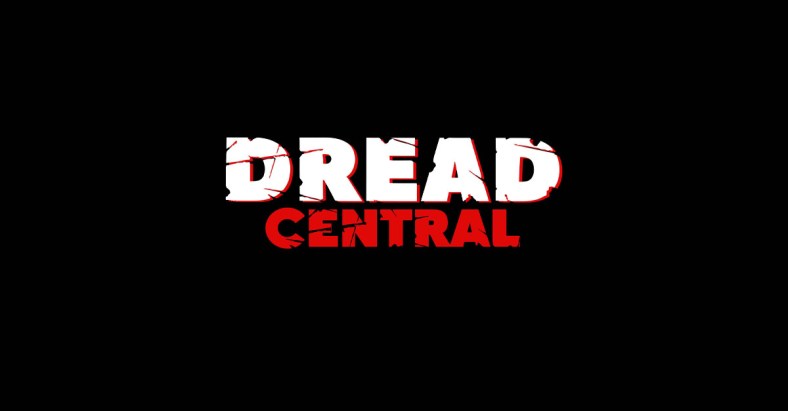Scream, Queen! A Conversation with Mark Patton, Horror’s First Male Scream Queen

The late Wes Craven’s legacy will go down in horror history as one of the most illustrious and diverse cinematic catalogues of all time, helming beloved films such as The Last House On The Left, The Hills Have Eyes, and the Scream franchise. For many horror critics and fans, however, Craven’s magnum opus is A Nightmare On Elm Street.
Often described as one of the most cerebral and original horror films ever made, Craven’s film spawned several sequels, many of which have been derided in comparison to the original. However, the first sequel, Freddy’s Revenge, is undoubtedly the most infamous, often touted as the “gayest horror film of all time.” The film has polarized critics and fans for years, but has retained an important place within LGBT+ culture over the last few decades. I recently caught up with Mark Patton, star of Freddy’s Revenge, to discuss his life and career, as well as his upcoming documentary Scream, Queen! My Nightmare On Elm Street, which explores the film’s problematic production and also its place within popular culture more generally.
Dread Central: How did you first get into acting?
Mark Patton: Well, when I was very young I was a singer. I was offered a recording contract when I was 15, but by dad wouldn’t let me do it. So, when it was time for me to leave home I hadn’t decided whether to go to New York, Los Angeles, or Nashville. My theatre teacher in high school, she gave me this magazine about New York and told me that I should go there. She could’ve gotten fired because it was more of a gay magazine, a nightlife magazine. It showed me things that I didn’t know existed. I flew to New York when I was 17 and had $137 and a one-way ticket. I just had to make it. That was it. I didn’t know any of the ‘rules’ of what show business was. I just learned as I went along. I very quickly signed with an agency and did a lot of commercials to stabilize myself financially.

I started going to acting classes and began auditioning more and more and eventually got my big role Come Back to the Five and Dime, Jimmy Dean, Jimmy Dean, which was then adapted into a film in which I reprised my role. The film was directed by Robert Altman and starred Sandy Dennis, Karen Black, Cher, and Kathy Bates. I was then cast in a test movie directed by François Truffaut about Little Nemo where I played the prince. Sadly, Truffaut died in the middle of the production and it was never finished. I then done a lot of small films in New York and that’s how I learned how to be an actor. These days, I’m getting a lot of jobs out of the alt gay film scene in New York, but I’m not sure if I want to be an actor again. I do know that I want to be able to communicate with people, whatever medium I can use to do so. I also have a career as a painter, which is the art form which I feel most comfortable with.
DC: In 1985 you landed the part of Jesse Walsh in the A Nightmare On Elm Street 2: Freddy’s Revenge, touted as the “gayest slasher film of all time.” Could you talk us through that process?
MP: Well I had originally screen tested to play Glen in the first Nightmare film, and it was between Johnny Depp and I. Wes Craven’s daughter chose Johnny. When the sequel came around I was the last person they saw. I read for the part of Jesse and 2 days later we were in production. Wes wasn’t behind the project at all. He only came in at the end as a consultant and he was insistent that there needed to be a Final Girl and not a Final Boy. In the end of Freddy’s Revenge, Lisa was supposed to die and I was left alone. And Wes said, ‘Oh no, you can’t kill the girl’. I wrote a little book called Jesse’s Lost Journals, and in that book Lisa dies in that way and I pick up the story from there. The first half of the book is true to the movie but the second half goes into a new world. I have the second part coming out which is called Jesse’s Revenge – it’s a lot of fun. He gets to have sex; he finally loses his virginity! He moves to New York and becomes an artist like I did, so it’s semi-autobiographical.
Mark Patton and Robert England as Jesse Walsh and Freddy Krueger, respectively.
DC: What can you tell us about your documentary, Scream Queen! My Nightmare On Elm Street, due to be released next year?
MP: You can see parts of it right now on ScreamQueenDocumentary.com and on Facebook. It’s a very serious documentary. Although I loved Never Sleep Again and I Am Nancy for what they are, it’s not the same kind of film. It’s more about 1985 than it is about anything else, and the confrontations are very strong. I always thought that the real villain in my story was David Chaskin, the writer. He insisted for so many years that he hadn’t written it as a gay film, but I knew that he had because we had mutual friends. He would always blame it on me, he’d say “Well I didn’t write it that way, but Mark was just so gay that he made the whole movie gay”. That’ what the movie is about. We have all the writers, directors, and actors in the room at the same time, so if people start lying, there was always someone there to call them out. At times, it was like a street fight, but it’s great and it’s funny.
I thought it would take 1 year and $100,000 and it’s taken 3 and a half years and $250,000. And I think, especially in terms of the time we’re living in now, it’s very relevant. I travel on the horror convention circuit, and I try to speak to young gay people and explain to them many of the civil rights that they own and how they were paid for by somebody else – they didn’t come for free. I speak to them about HIV and homophobia, real homophobia. When I moved to New York, it was illegal to stand at a bar and face out into the crowd because you could be arrested for solicitation. I want them to know that, a generation ago, they were criminals. They were being put in prison or institutionalized, not getting married. Not to scare them, but to let them know that somebody paid for their seat. Somebody stood on a picket line and took a brick to the head for them. I think that’s my mission. The movie is being released at a perfect time, when you think about it.
DC: If you could be part of another horror franchise, which one would you choose and why?
MP: I’d choose another one of Wes’ projects, the Scream series. It’s so much fun and it’s different. I love ‘80s horror, but Scream had so much wit. I love the fact that Drew Barrymore said, ‘I want to be in this but I need to be the first blonde to die’. It truly shocked people. I also like Scream Queens on FOX, it’s a lot of fun. But if I could be in anything horror related I would choose American Horror Story. I know a couple of people on the show very well and they surprise me constantly with what they do. I know Ryan Murphy’s a big fan of the Nightmare series. He put Heather Langenkamp, Nancy from the original Nightmare film, in a few episodes. I was at San Diego Comic-Con recently and Ryan’s assistant spoke to me about actually doing something… so we’ll see what happens.
DC: What would you say would be your greatest achievement?
MP: I’m very proud of the work I do for the Trevor Project and for the Body Politic, which is the largest AIDS organization in the world. When I announced my HIV-positive status, I was shocked at the response. Everybody wants to fundraise for HIV but nobody wants to talk about it or disclose their status. But I think my best moment is still to come. I think we’ve made a very important film in Scream, Queen and I think it’ll be received in many ways from the horror community – it’s going to be 50/50. I’ll probably be on the road for about a year, and it’s nice because it came from my own imagination. When I was traveling and I would be discussing the story of Freddy’s Revenge, I finally realized just how ridiculous the whole thing was. I wanted to save Jesse because I kind of love him and I love the movie. I know it’s not Shakespeare, but I feel like it was very unfair how it was treated.
Since I’ve started going on the convention circuit, the needle has shifted from me getting hate mail to me getting fan mail, and lots of it. I wanted to put a face on homosexuality in horror. I meet people all the time who say, ‘I don’t know anybody gay’, or ‘I don’t know anybody HIV positive’, so I set up a situation within the convention where they could have those experiences. It’s been very liberating and very healing for me. I don’t think I realized until about a year into the filming of the documentary just how angry I was and how long I’d carried that anger around for. It was as if I’d been robbed of my destiny. I took the narrative of my own life back and that’s what I’m doing now.
I have people reach out to me all the time saying, ‘This movie changed my life’, and ‘I pretended that you were my boyfriend’, and ‘There’s someone who would love me back’. They saw themselves on screen. That’s so important. Another thing I’ve loved about my career is when I was living on a dirt road in Mexico, they eventually found me and Tommy Houston said to me, ‘Do you realize that people call you the Greta Garbo of horror?” and I said no… but I liked the way that sounded. And then he asked me if I wanted to go on tour. And now they call me the Joan Crawford of horror, because I’m so good to my fans.

Categorized:News

